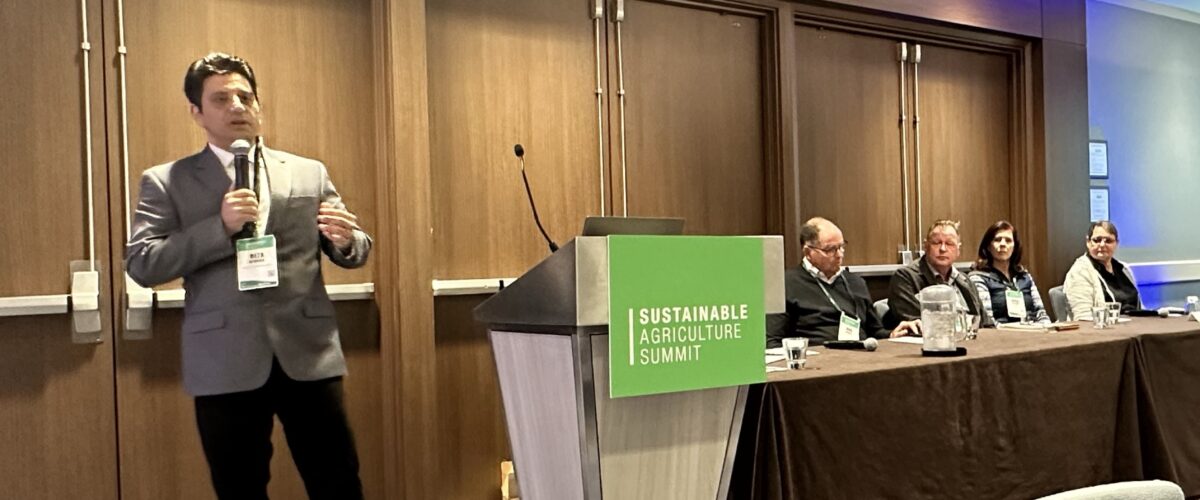
DSWR Insights Shared in Panel Discussion at 2024 Sustainable Agriculture Summit
December 6, 2024
Representatives from three Dairy Soil & Water Regeneration research sites across the country provided farmers, processors, supply chain companies and industry thought leaders insights into the project and a sneak peek at preliminary results at the 2024 Sustainable Agriculture Summit in Minneapolis.
Reza Afshar, vice president of soil, feed and water research at Dairy Management Inc., moderated a panel discussion and audience Q&A involving April Leytem from USDA’s Agricultural Research Service site in Idaho, Dennis Busch of the University of Wisconsin-Platteville, Quirine Ketterings of Cornell University and western New York dairy farmer, Rob Noble of Noblehurst Farms.
The researchers provided an overview of the significance of dairy in their regions and the studies taking place in the diverse climates represented at the table. They also shared preliminary results on their studies examining various field management practices that have the potential to address climate and sustainability challenges faced by farmers. Specifically, the eight-year DSWR project is studying soil health and manure management and their effects on greenhouse gas reduction, water quality improvement and agronomic factors such as forage yield and quality. In all, seven universities and the USDA site, which represent major dairy-producing regions, are partners in the project. The studies are being conducted on research farms and working dairies.
Noble talked about his farm’s background and history of working with Cornell, his alma mater. He emphasized the importance of farmers engaging in projects like DSWR to help the industry assess dairy’s environmental footprint. Additionally, Noble highlighted the role of sustainability in the numerous day-to-day decisions he makes on his farm, emphasizing the need for data to guide those choices and address the economic barriers that exist in implementing new technologies or practices.
As supply chain companies become more interested in reducing their Scope 3 emissions, panelists explained how multi-disciplinary projects, like DSWR, that involve various stakeholders can help drive impactful research and results. Researchers touched on how the collaborative nature of the project can provide multiple angles of analysis, attract creative funding sources, apply research to real-world situations, build valuable relationships and foster professional networks.
Noble noted how his collaboration with a land-grant university like Cornell benefits both his farm’s sustainability and the broader industry. He also offered advice for researchers on improving farmer involvement in on-farm research projects, stressing the importance of effective communication and collaboration.
Reza closed the conversation by reiterating the importance of DSWR’s role in filling the data gap and the significance of partnerships and leveraging funding opportunities to drive significant environmental change within the dairy feed sector.